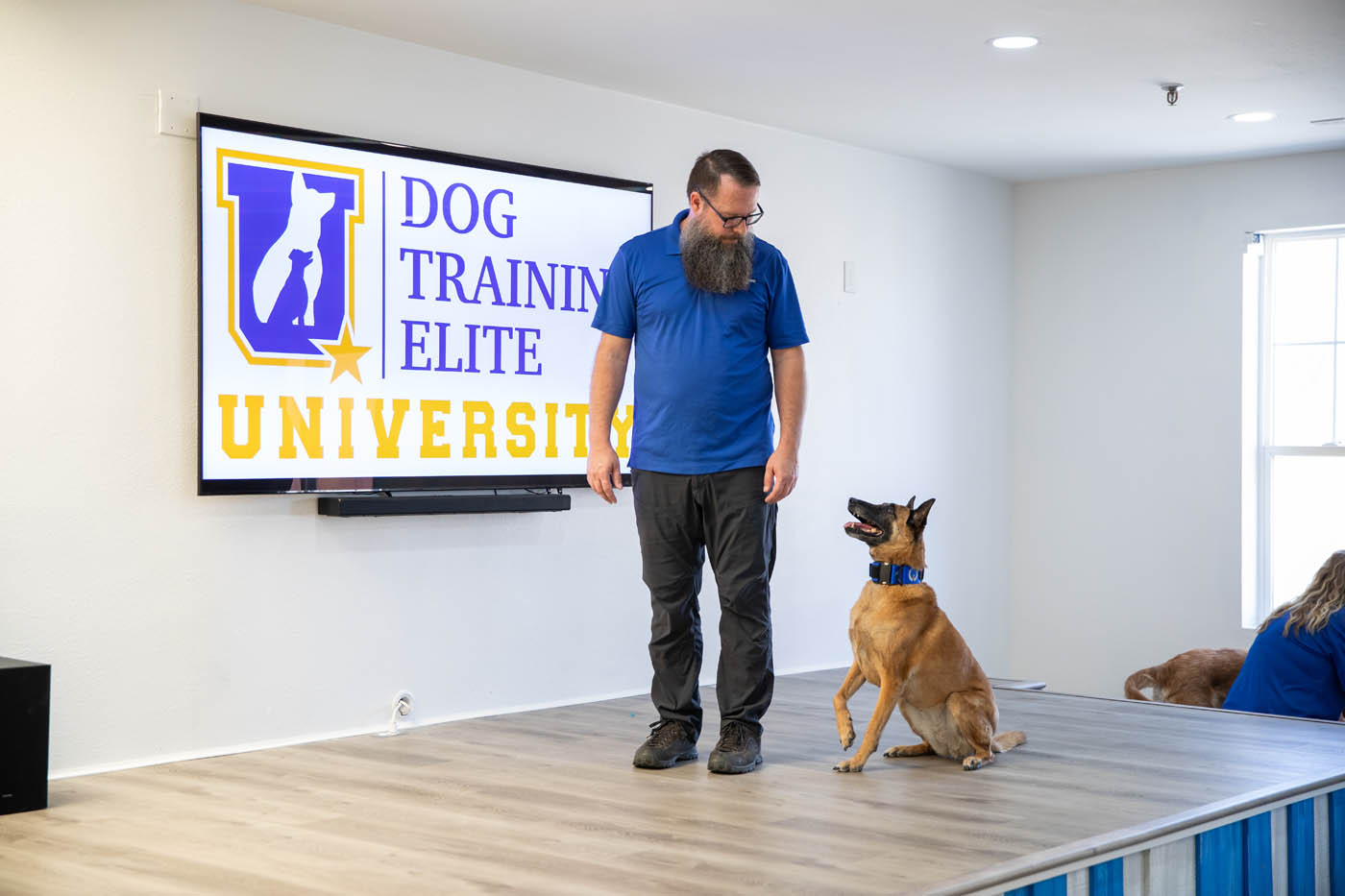Dog Training Charlotte NC: Your Path to a Well-Behaved Dog
Unlock Your Pet dog's Possible: Proven Canine Training Approaches for Success
Efficient dog training is a nuanced procedure that pivots on recognizing canine actions and using medically backed methods. By incorporating favorable reinforcement, developing clear commands, and focusing on socializing, pet proprietors can cultivate a productive connection with their pet dogs.
Comprehending Dog Habits
Understanding pet dog habits is essential for reliable training and fostering a positive connection between dogs and their owners. An extensive grasp of canine body language, articulations, and social interactions is crucial for acknowledging their feelings and requirements. Dogs interact primarily through non-verbal signs; as an example, a wagging tail might show excitement, while pinned ears can indicate anxiety or entry.

Moreover, ecological variables play a significant function fit a dog's behavior. Changes in regular, brand-new surroundings, or the existence of unfamiliar individuals can bring about anxiety or anxiety in dogs. Acknowledging these triggers allows proprietors to mitigate negative reactions and establish appropriate training techniques.
Ultimately, a deep understanding of dog actions lays the foundation for successful training methods, enhancing both behavior and the general bond in between the pet and its proprietor. dog training near me. This expertise is vital for cultivating a well-adjusted, happy canine buddy
Positive Support Strategies
Effective training depends greatly on positive support strategies, which have actually been revealed to generate substantial cause shaping desired habits in pets. This strategy entails rewarding a dog for displaying certain habits, consequently enhancing the possibility that these habits will be repeated. Benefits can take different forms, including deals with, praise, toys, or play, depending upon what inspires the specific canine.

It is important to progressively eliminate rewards as the dog finds out the behavior, transitioning to intermittent reinforcement. This strategy maintains the actions over time while protecting against dependence on consistent rewards. By concentrating on positive reinforcement, trainers can grow a trusting relationship with their pets, promoting a healthy and participating training environment that enhances overall obedience and efficiency.
Developing Constant Commands
A fundamental aspect of effective pet dog training is the establishment of regular commands. Consistency in commands is vital for effective interaction between the pet dog and the fitness instructor. When commands are uniform, pets find out to associate certain words with desired behaviors, which accelerates the training procedure and improves understanding.
To establish regular commands, it is important that all household members utilize the very same terms and motions. For example, if one individual utilizes "rest" while another states "take a seat," read the full info here it can create complication for the dog. Select clear, distinct words for commands and guarantee everybody included in the pet dog's training follows these choices.
Strengthen commands through frequent technique, making certain that the dog receives ample opportunities to respond correctly. When a canine effectively complies with a command, prompt positive reinforcement should comply with.
Last but not least, be person. Developing regular commands requires time and initiative. With commitment and clearness, you will help your pet establish a strong understanding of expectations, ultimately leading to a mannerly friend.
Socializing and Exposure
Interacting socially a dog is crucial for cultivating a well-adjusted and positive friend. This procedure includes exposing your canine to a range of atmospheres, individuals, and various other animals to develop their dog training programs near me social skills and flexibility. Early socializing, preferably in between the ages of 3 to fourteen weeks, is vital, as it prepares for a pet's future actions.
Throughout socializing, goal to offer favorable experiences in different settings, such as parks, hectic streets, and homes with other pet dogs. Present your canine to numerous stimuli, including audios, sights, and scents, guaranteeing that each encounter is fulfilling. This exposure aids reduce anxiety and stress and anxiety, leading the way for an extra resilient canine.
Engaging in controlled team play sessions with various other dogs can likewise boost social skills, teaching your family pet appropriate communications and borders. Prioritizing socialization will substantially contribute to your pet's overall happiness and habits throughout their life.
Overcoming Common Training Difficulties

Canines might battle to concentrate in busy or unfamiliar settings. Gradually desensitize your canine to diversions by beginning training in a peaceful setting and slowly presenting more stimulations as they come to be skilled.
Additionally, behavioral issues like jumping or excessive barking can become aggravating. Address these by instructing alternate habits, such as sitting smoothly when greeting visitors. Uniformity and patience are vital; enhance preferred behaviors regularly and avoid scolding, which can cause complication.
Lastly, acknowledge that each pet dog is one-of-a-kind, and training timelines may vary. Dressmaker your strategy to your canine's individual needs, and look for expert support if required. With perseverance and the right approaches, overcoming these challenges can result in a trained, delighted canine friend.
Verdict
In conclusion, unlocking a pet's prospective requires an extensive strategy that integrates an understanding of canine actions, the application of positive support techniques, and the establishment of regular commands. Early socialization and direct exposure to diverse atmospheres additionally enhance a pet dog's adaptability and self-confidence. By dealing with usual training challenges with customized approaches and persistence, a unified and participating partnership between canine and handler can be fostered, ultimately causing a well-behaved buddy with the ability of view it now prospering in numerous circumstances.
Reliable canine training is a nuanced procedure that hinges on understanding canine actions and utilizing medically backed techniques.Recognizing pet behavior is essential for reliable training and promoting a positive relationship in between pet dogs and their proprietors.Reliable training relies heavily on favorable reinforcement techniques, which have actually been revealed to yield significant outcomes in forming preferred behaviors in pet dogs. When commands are consistent, canines find out to link particular words with preferred habits, which accelerates the training procedure and enhances understanding.
In verdict, unlocking a pet dog's prospective demands a detailed method that incorporates an understanding of canine behavior, the application of favorable reinforcement techniques, and the facility of consistent commands.